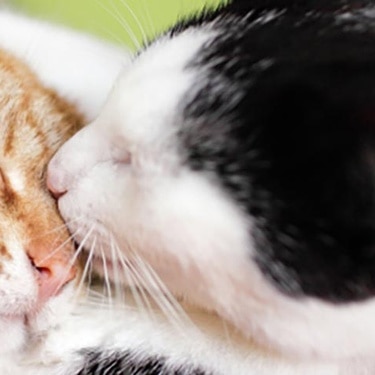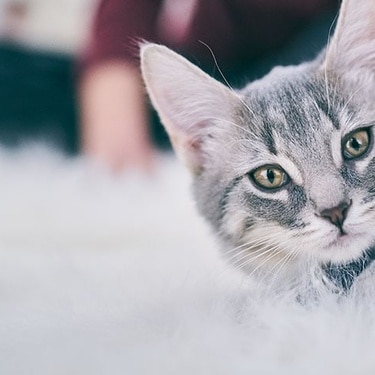
-
Find the right food for your petTake this quiz to see which food may be the best for your furry friend.Find the right food for your petTake this quiz to see which food may be the best for your furry friend.Health CategoryFeatured products
 Puppy Sensitive Stomach & Skin Salmon & Vegetable Stew
Puppy Sensitive Stomach & Skin Salmon & Vegetable StewGentle on stomachs while nourishing skin & supporting development in growing puppies
Shop Now Adult 6+ Large Breed Chicken Meal, Barley & Rice Recipe Dog Food
Adult 6+ Large Breed Chicken Meal, Barley & Rice Recipe Dog FoodSupports energy level, joint health, and beautiful coat in large breed mature dogs
Shop Now Adult Perfect Weight & Joint Support Chicken & Brown Rice Recipe Dog Food
Adult Perfect Weight & Joint Support Chicken & Brown Rice Recipe Dog FoodThis weight management and mobility support dog food was created with Hill’s unique understanding of the biology of overweight dogs.
Shop Now -
DogCat
- Cat Tips & Articles
-
Health Category
- Weight
- Skin & Food Sensitivities
- Urinary
- Digestive
- Kidney
- Dental
- Serious Illness
-
Life Stage
- Kitten Nutrition
- Adult Nutrition
Featured articles Water
WaterWater is the most important nutrient of all and essential for life. Animals can lose almost all their fat and half their protein and still survive, but if they lose 15% of their water, it will mean death.
Read More Pet Food Storage Tips
Pet Food Storage TipsWhere you store your cat and dog food can make a big difference in the quality and freshness once it is opened. Here are some common questions and recommendations for optimal storage for all of Hill’s dry and canned cat and dog food.
Read More The Right Diet For Your Pet
The Right Diet For Your PetLearn what to look for in healthy pet food & nutrition, including ingredients, quality of the manufacturer, your pet's age, and any special needs they have.
Read More -


Unfortunately, cats don't always connect with the litter box. Even cats that know the drill will sometimes choose another spot at home. "House-soiling" can become a concern for even the best cat owners. It can be a sign of a serious health issue or simply the result of changes around the house. Pay close attention for clues to put an early end to a nasty problem for both you and the pet you love.
Signs of a problem:
A pattern of urinating and/or defecating outside the litter box
Urine spraying - evidence of urine marks around doorways, windows or new objects in the house
Spending longer than a normal amount of time in the litter box
Vocalizing while in the litter box
Going to the litter box more often than normal

Potential causes:
Health issues ranging from diabetes mellitus to lower urinary tract disease


Tasty Tips
A dirty litter box or inadequate number of boxes in the home. At least one box per cat plus one is recommended. The litter boxes need to be in different locations in the house - not all in one room.
Litter box is located in a remote, noisy or unpleasant surrounding
Litter box is inappropriate - covered boxes can maintain odors and large cats may not be able to move around enough in small boxes
Wrong type of litter or sudden change in litter type
Social changes, such as the addition of a new cat or the sudden presence of outdoor cats
If you change your cat's litter box infrequently, travel a lot, or have multiple cats at home, you're more likely to experience a "house-soiling" problem. Consider making adjustments based on some of the factors described above. If the problem continues, see your veterinarian to investigate possible health problems.
SOURCE: FLUTD: Thinking Outside (and Inside) the Litter Box - Proceedings of the 2007 Hill's FLUTD Symposium
Related products

With delicious chunks in a decadent gravy

With delicious chunks in a decadent gravy

With delicious chunks in a decadent gravy

Gourmet daily nutrition, carefully made. Tasty chunks with chicken & beef in a decadent gravy. Supports digestive health, nourishes skin and promotes a lustrous fur.
Related articles

Get helpful information on proper feline oral healthcare and why it's so vital to take care of your cat's teeth.

Being overweight puts a cat at risk for developing many serious health issues. Weight gain indicates an increase in body fat and usually results when your cat eats too much and exercises too little.

HillsPet Nutrition provides information on proper nutrition, fitness and special needs in keeping your cat healthy and happy.

As a responsible pet owner you owe it to yourself and your cat to understand problems associated with overweight cats.

Put your cat on a diet without them knowing
Our low calorie formula helps you control your cat's weight. It's packed with high-quality protein for building lean muscles, and made with purposeful ingredients for a flavorful, nutritious meal. Clinically proven antioxidants, Vitamin C+E, help promote a healthy immune system.
Put your cat on a diet without them knowing
Our low calorie formula helps you control your cat's weight. It's packed with high-quality protein for building lean muscles, and made with purposeful ingredients for a flavorful, nutritious meal. Clinically proven antioxidants, Vitamin C+E, help promote a healthy immune system.


